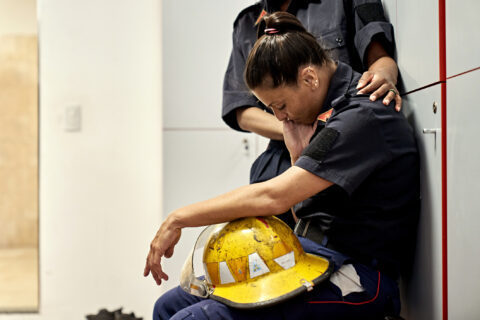Authored by Kathya Correa Almanza, Menino Fellow 2025
One of the most critical stages in a child’s development is prenatal to age three. According to a report by the Prenatal-to-3 Policy Impact Center (PDF), success during this time is linked to long-term health, wellbeing and achievement. As community leaders, mayors, city council members and municipal staff play a key role in ensuring that families have the resources and support needed to thrive during those formative years. You can help advance outcomes for children and families during the prenatal to three period.
Community health workers often focus on high-need populations, and their insights can be applied to broader community needs. By working with families facing significant challenges, they have developed a deep understanding of the resources and services that can make the most impactful difference. Leveraging the wisdom of these workers can help local leaders make more informed decisions about policies and services that will create lasting and positive change
To better understand the needs of the prenatal-to-three population and to glean the wisdom of the people who work with them, NLC spoke to community health workers from Special Start Alameda County who support one of the most high-risk child populations: premature infants. The following are four things they think you should know.
1. Long-Term Support Systems are More Effective Than Short-Term Support Alone
Long-term support systems often connect clients with other necessary resources they might not otherwise access, ensuring fewer families are forgotten. An example is Special Start, which supports families for an average of three years and connects them to various resources such as food banks, legal assistance and much more. Not only do more people receive the resources they need, but stronger relationships are built by the trust and confidence developed over years of consistent interaction. Additionally, long-term outcomes can be more accurately measured, which is beneficial when securing grants and funding.
2. The Earlier the Support Starts, the Better the Outcomes
Development from prenatal to age three is rapid and significant. When milestones are not reached, early interventions help babies catch up before gaps widen too much. Nurses and community health workers help teach parents how to identify developmental milestones and connect families with occupational or speech therapists when there is cause for concern. This creates more knowledgeable and engaged parents, leading to stronger and healthier generations.
3. Mental Support Systems are Strained and are Not Easy to Access
In a 2024 report (PDF), the surgeon general issued an advisory on the mental health of parents in the US. Major life changes, such as the birth of a new baby, can increase stress and worry. New mothers are also at risk for postpartum depression. The mental health of parents significantly impacts the development and wellbeing of a child. Finding mental health resources is becoming harder, especially for those seeking affordable options. Mayors can help create integrated mental health systems that facilitate cross-communication and encourage collaboration between city offices, mental health providers and community resources. For example, former Mayor de Blasio launched a city-wide plan in response to COVID-19 called Mental Health for All.
4. These Critical Resources are Losing Funding When More is Needed
With tighter budgets, some resources such as diaper programs and food banks are forced to limit their support, drastically impacting families. Mayors should prioritize funding programs that support the early childhood population because the investment benefits children throughout their entire lives. As one worker stated, “It does not go to waste. These families pay taxes, are hardworking, and contribute to the economy. They are just as important as the person next to us. They and their baby deserve to be taken care of. They deserve all we can possibly give them.”
Explore the ‘Decades in the Making’ Early Childhood Toolkit
What happens when a local government chooses to prioritize young children, their families and the early childhood workforce for years at a time? That’s the question this new toolkit answers. Explore it to get practical insights and clear next steps to begin implementing proving policy wins in your community.












